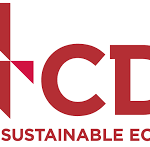A considerable portion of the estimated $2 trillion assets in the United States that are socially and environmentally responsible investments (SRI) would be blinded under the significantly reduced corporate disclosure resulting from a U.S. Environmental Protection Agency (EPA) proposal to slash "Toxics Release Inventory" (TRI) reporting by major polluters, according to a warning issued today by the Social Investment Forum Foundation (SIFF) and the Environmental Integrity Project (EIP). In an unusual development, the leading investment and environmental groups are joining forces to urge investors and other concerned citizens to go to http://www.SaveTRI.org to oppose the EPA proposal before the comment period ends on January 13, 2006.
The http://www.SaveTRI.org Web site features a convenient email form that allows individuals to make clear their opposition to the EPAs proposed changes to the Toxics Release Inventory reporting requirements under section 313 of the Emergency Planning and Community Right-to-Know Act. According to the independent group OMBWatch, the EPA rule rewrite would: move from the current annual reporting requirement to every other year reporting for all facilities, eliminating half of all TRI data; allow companies to release ten times as much pollution before being required to report the details of how much toxic pollution was produced and where it went; and permit facilities to withhold information on low-level production of persistent bioaccumulative toxins (PBTs), including lead and mercury, which are dangerous even in very small quantities because they are toxic, persist in the environment, and build up in people’s bodies."
Speaking on behalf of both SIFF and the Advocacy and Public Policy Program (APP), Calvert Chief Social Investment Strategist Julie Gorte said: As investors, we dont want to have to wait for disasters to find out whether companies are doing a good job or a poor job of managing their environmental impacts. Without TRI data, if we own the companies, it will be too late to rescue our portfolios after a major pollution situation hits the headlines. TRI gives us one mechanism by which to exercise the vigilance the due diligence, to use the legal term that allows us to tell the difference between well-governed companies and poorly-governed ones before the consequences show up in our portfolios. EPAs proposed rollbacks will make it much more difficult for asset managers or fiduciaries to exercise proper diligence. Coming so soon after the governance scandals, in which we saw countless examples of the harm done by information we did not know, this is a giant step backward, and we strongly urge EPA to reconsider taking it."
Environmental Integrity Project (EIP) Director Eric Schaeffer said: "In 1986, Congress created TRI in response to the catastrophic release of toxic chemicals at a Union Carbide plant in Bhopal, India that killed thousands of people. For nearly 20 years, TRI has been an essential tool in alerting communities, workers, first responders, and public health officials to the presence of chemicals and has provided critical assistance in dealing with highly hazardous situations. The EPAs proposed TRI cutbacks are especially troubling in light of the essential role that TRI played in identifying toxic chemicals in the aftermath of Hurricane Katrina. By moving from annual reports, the EPA would open up a gap every other year during which companies could pollute as much as they want without reporting. The ill-conceived rule proposals also would allow companies to release ten times the amount of toxics before detailed reporting is required. This may be sweet deal if you are a polluter, but it should leave a sour taste in the mouth of everyone else in America."
Speaking on behalf of the Neuberger Bermans Socially Responsive Investment Group and the Social Investment Forums Social Investment Research Analyst Network (SIRAN) , Ingrid S. Dyott, managing director, Neuberger Berman, said: We urge EPA to withdraw its proposed changes to TRI reporting requirements, which we believe would make TRI data less timely, complete, and useful Moving to a biennial reporting requirement would make it more difficult for us to track corporate performance year-over-year and delay our chances to raise questions or concerns about TRI data with companies in a timely fashion. Given the tremendous success the TRI program has had over its history in promoting voluntary reductions of reportable chemicals, we would hope EPA would have adequate budget and resources to administer the program effectively without resorting to cutting the reports it receives in half to generate savings with biennial reporting. Companies may face risks and potential liabilities from releases or handling of even small amounts of many TRI-listed chemicals and we see no compelling need to weaken the rights of investors to gain a full picture of these risks.
The message available for customization on www.SaveTRI.org reads, in part, as follows: I am deeply concerned about the controversial rule changes proposed for the Toxics Release Inventory (TRI) reporting requirements under section 313 of the Emergency Planning and Community Right-to-Know Act (EPCRA). The changes recommended by the EPA would be detrimental to communities living near major polluters and also to investors who use TRI data to identify companies that foul the environment TRI provides investors with "hard" data that is crucial for evaluating and analyzing corporate performances. Traditional financial disclosure requirements do not reveal all of the risks, liabilities, or advantages associated with a corporation’s environmental performance. TRI data provides additional information that is necessary for investors to make informed financial and investment decisions The Toxics Release Inventory program has succeeded in keeping the pressure on companies to voluntarily reduce emissions of harmful chemicals. This is good for the environment … it is good for nearby communities … and it is good for investors who want avoid investing in companies with major pollution-related liabilities. For all of the above reasons, I strongly urge the EPA to withdraw its proposal to gut TRI data reporting.
According to the Social Investment Forum, assets in portfolios involved in screening or shareholder advocacy on social and environmental issues climbed to $2.14 trillion in 2003, an increase over the $2.01 trillion counted in 2001. The three core strategies of SRI are screening, shareholder advocacy, and community investing. Screened portfolios, with $2.14 trillion in assets, represent the largest amount of assets in SRI. Many SRI investment strategies rely upon TRI data in order to identify major polluters and then to track positive and negative trends over time among the companies identified by the EPA.
The full text of the EPA rules
Save TRI website
OMBWatch report on the problems with the EPA attack on TRI reporting



